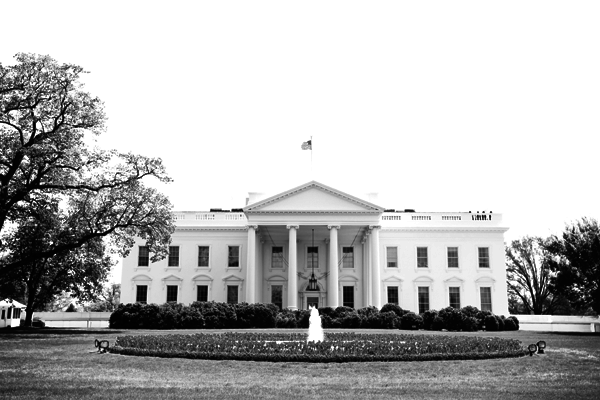The Impact of Decentralized Markets on Energy Policy
Decentralized markets, characterized by scarcity pricing and profit-and-loss calculations, possess critical insights that often elude central government planners. Such economic principles were notably absent from the energy policy framework during Jimmy Carter’s presidency (1977-1981). A pivotal point during Carter’s administration was the incorrect perception that oil and gas resources were nearing exhaustion, leading to government interventions that sought to mitigate this purported market failure. This prompted a combination of mandates, regulations, and expanded government roles, ultimately contributing to the turbulence within the energy sector.
Background of the 1970s Energy Crisis
The origins of the energy crisis in the 1970s can be traced back to earlier policies instituted by President Richard Nixon. His sweeping price controls and allocation regulations introduced in 1971 disrupted the energy market and set the stage for the crises that followed, including the Emergency Oil Allocation Act of 1973. Upon Nixon’s resignation, Gerald Ford inherited this complicated economic landscape and continued with interventionist measures, culminating in the rise of Jimmy Carter, who, while campaigning, criticized the existing Republican energy policies.
Carter’s Approach to Energy Deregulation
Upon taking office, President Carter recognized the need for an energy approach that emphasized deregulation to enhance supply and moderate demand. Despite this intention, his administration introduced various government interventions, believing that the economic landscape of oil and gas would continue to deteriorate. Key legislative milestones included the establishment of the U.S. Department of Energy in 1977 and the continuation of oil price controls along with the introduction of a windfall profits tax, aimed at regulating the petroleum sector.
The National Energy Plan of 1977
During his second month in office, Carter underscored the necessity for a national energy policy, declaring that the U.S. was the only major industrialized nation lacking such a framework. This policy focused on demand-side conservation, urging citizens to adopt energy-saving practices—illustrative examples included regulating thermostat settings. On the supply side, efforts were concentrated on utilizing coal reserves, developing renewable energy sources like solar power, and maintaining strict measures around nuclear energy production. Carter believed that the energy crisis was rooted in both resource scarcity and geopolitical tensions, particularly with OPEC.
The Challenges of Government-Controlled Energy
Despite the well-intentioned policies proposed by the Carter administration, government management of supply and demand led to fuel shortages and rising public frustration. The gas lines of 1979 exemplified the shortcomings of these interventions, where Carter’s “Melancholy Address” called for increased government involvement rather than a decrease. His vision included creating an Energy Mobilization Commission to expedite projects and emphasized that national sacrifice was crucial to overcoming the energy crisis.
Consequences and Economic Insights
The complexity of managing an energy crisis through central planning culminated in widespread criticism of Carter’s policies. A key takeaway from the tumultuous energy years was highlighted in a Wall Street Journal editorial entitled “Buffer of Civility,” which emphasized the inherent benefits of free market mechanisms. Classical economists had long argued that these mechanisms not only promoted economic efficiency but also societal stability by diminishing conflicts arising from resource allocation. The editorial suggested that the experience of the 1970s reinforced the belief that maintaining decentralized markets is essential to averting crises in the future.
Conclusion
Reflecting on the lessons from Jimmy Carter’s administration, it becomes clear that the management of energy prices and allocations through governmental intervention should be avoided. The Carter era’s reliance on planned systems rather than market principles led to increased volatility and discontent within the energy sector. By understanding that free access to energy resources is vital for economic adjustment and expansion, future policymakers can aim to construct more resilient and efficient energy frameworks that rely on market dynamics rather than interventionist measures.
FAQs
What was the primary cause of the 1970s energy crisis?
The energy crisis was primarily caused by a combination of geopolitical factors, including the oil embargo imposed by OPEC, and domestic policies that distorted market behaviors through price controls and government regulations.
What were some key policies introduced during Carter’s presidency related to energy?
Key policies included the creation of the U.S. Department of Energy, the introduction of a windfall profits tax, and various initiatives aimed at promoting renewable energy sources and energy conservation.
How did the public respond to Carter’s energy policies?
The public response was largely negative, especially during fuel shortages in 1979, leading to frustration over the long gas lines and perceptions of government incompetence in managing energy resources.
What is the significance of decentralized markets in energy policy?
Decentralized markets enable more responsive and efficient allocation of resources, with prices effectively signaling supply and demand dynamics, which can help prevent shortages and market distortions caused by central planning.
What lessons can be learned from the Carter administration’s approach to energy?
One critical lesson is the importance of valuing free market mechanisms for energy distribution. Future energy policies should focus on minimizing government intervention to promote efficiency, innovation, and market-driven solutions.

